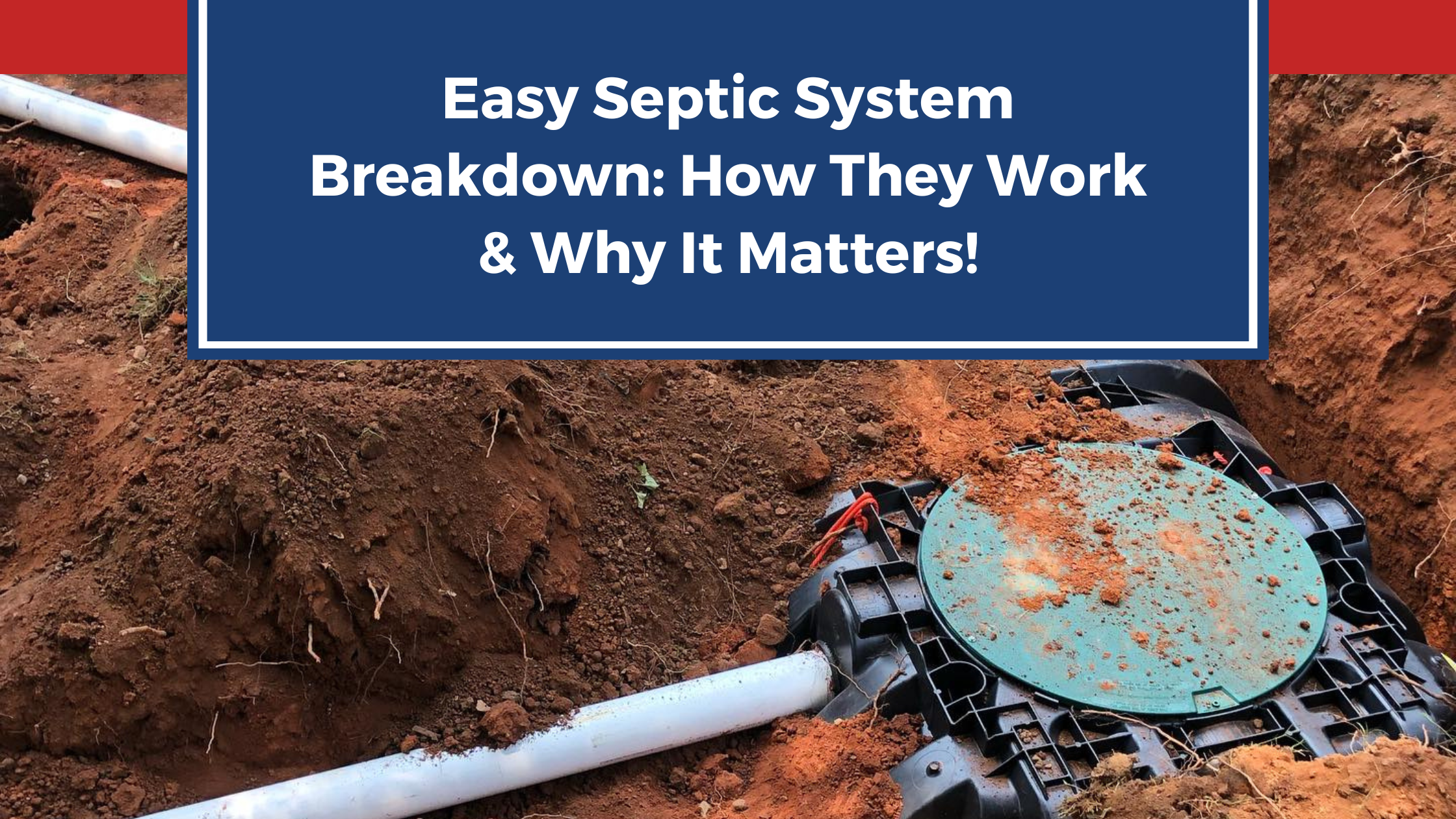Easy Septic System Breakdown: How They Work & Why It Matters!
Septic systems are an essential component of many homes, especially in rural areas like Acworth, GA. Understanding how these systems work can help homeowners maintain them properly, avoid costly repairs, and protect the environment. In this helpful article, we’ll break down the workings of a septic system in a fun and educational way, explaining why it matters for you and your community.
What is a Septic System?
A septic system is an underground wastewater treatment structure commonly used in areas without centralized sewer systems. It comprises two main components: a septic tank and a drain field. These systems rely on natural processes to treat and dispose of household wastewater.
The Septic Tank
The septic tank is a watertight container typically made of concrete, fiberglass, or polyethylene. It holds wastewater long enough for solids to settle at the bottom (forming sludge) and for oils and grease to float to the top (forming scum). The middle layer of partially clarified water then exits the tank into the drain field.
The Drain Field
Also known as a leach field, the drain field is a shallow, covered excavation in the soil. Filtered water from the septic tank is discharged here, where it percolates through the soil, which naturally removes harmful bacteria, viruses, and nutrients.
How Septic Systems Work
- Wastewater Collection: Wastewater from toilets, sinks, showers, and appliances flows into the septic tank through a single main drainage pipe.
- Separation: In the septic tank, wastewater separates into three layers: sludge (heavier solids), effluent (liquid), and scum (lighter oils and grease).
- Decomposition: Bacteria in the septic tank break down organic matter in the wastewater, which reduces the volume of sludge.
- Effluent Discharge: The liquid effluent flows from the septic tank into the drain field through perforated pipes. The soil in the drain field treats the effluent naturally.
- Soil Filtration: As the effluent percolates through the soil, natural filtration processes remove harmful pathogens, nutrients, and contaminants, making the water safe to re-enter the groundwater system.
Why It Matters
Environmental Protection
Properly functioning septic systems protect the environment by treating wastewater naturally. They prevent harmful pathogens and nutrients from contaminating local water sources, which is crucial for maintaining healthy ecosystems and safe drinking water.
Public Health
Malfunctioning septic systems can pose serious health risks by allowing untreated wastewater to enter the ground and surface waters. This can lead to waterborne diseases and contamination of drinking water supplies. Regular maintenance ensures that your system operates efficiently and protects public health.
Property Value
A well-maintained septic system is an asset to your property. It ensures that your home’s wastewater treatment is effective and reliable, which can be a significant selling point for potential buyers. Conversely, a failing septic system can be a major deterrent and costly to repair.
Cost Savings
Regular maintenance and understanding how your septic system works can save you money in the long run. By preventing major issues, you avoid costly repairs and potential fines from local health departments. Routine inspections and pumping every 3-5 years are key to keeping your system in good working order.
Tips for Maintaining Your Septic System
- Regular Inspections: Have a professional inspect your septic system every three years. Check out One Way Septic for reliable service in Acworth, GA.
- Pump Your Tank: Pump the septic tank every 3-5 years to remove sludge and scum buildup.
- Water Conservation: Use water efficiently to reduce the load on your septic system. Fix leaks and install water-saving fixtures.
- Proper Disposal: Do not flush non-biodegradable items or chemicals that can harm your septic system. Use septic-safe products and avoid pouring grease down the drain.
- Protect the Drain Field: Keep the area around your drain field clear of heavy machinery, vehicles, and structures to prevent damage.
For more information on local regulations and resources, visit the official websites of Acworth, Marietta, and other surrounding areas.
Understanding how septic systems work and why they matter can help you maintain your system more effectively, protect the environment, and ensure the health and safety of your community. For professional septic services in Acworth, GA, contact One Way Septic today!
Contact Us;
One Way Septic is a family owned and operated septic tank and sewer service located in Acworth, GA. We serve a majority of the state of Georgia from Atlanta northward. You may reach us by phone at 404-775-1164, by email at [email protected], or visit our website and request service.




